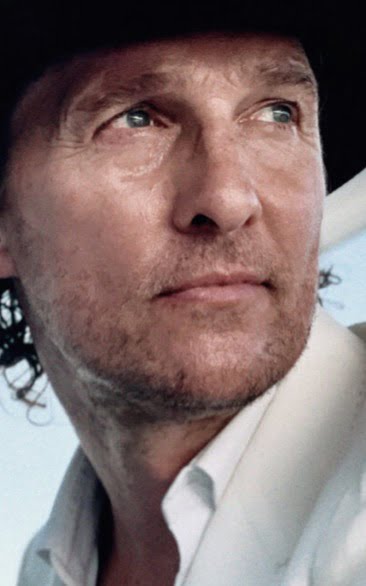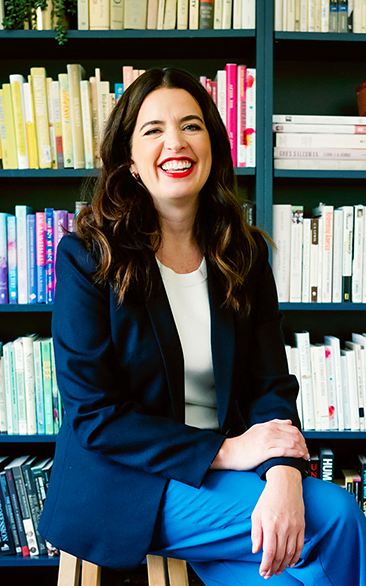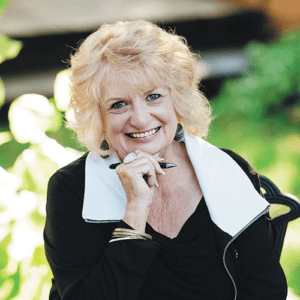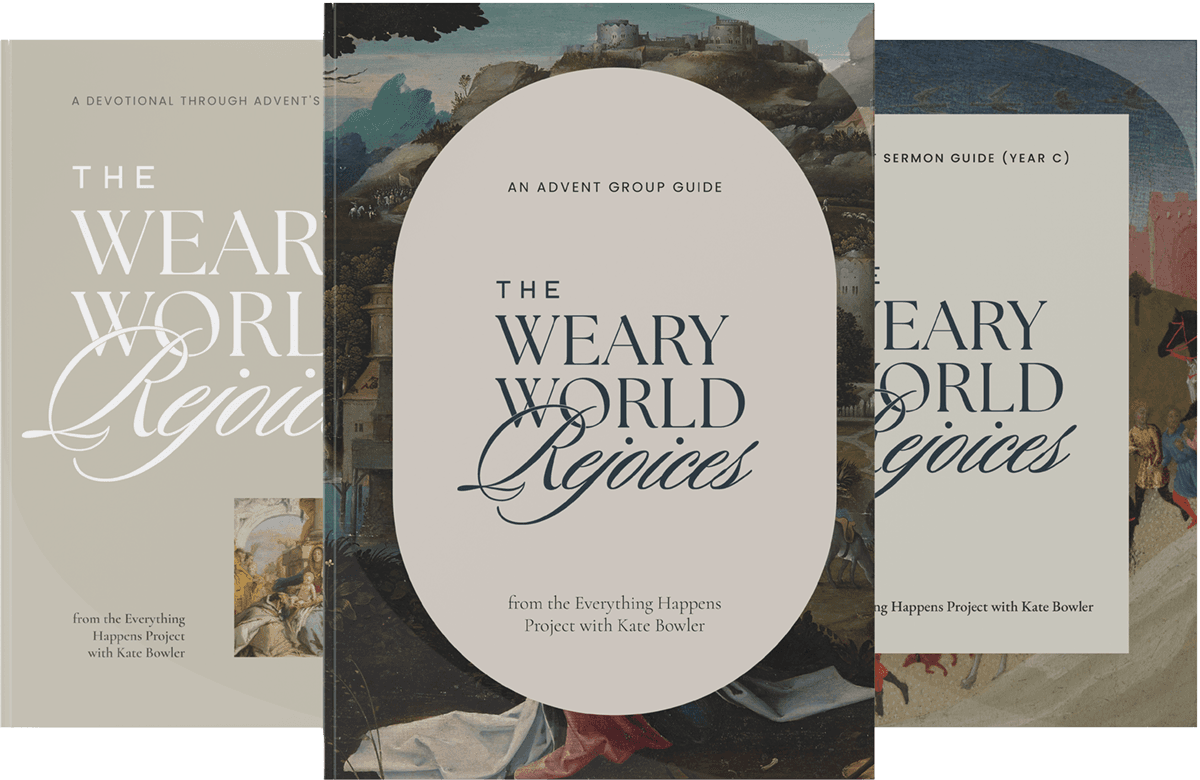Kate Bowler: I’m Kate Bowler, and this is Everything Happens. I’m a historian, author, aggressively, fast walker. But lately, in a world that promises endless progress, even now in a pandemic, I realized I just need to be a person. It’s hard to give up on the feeling that the life you want is just out of reach. If only you tried to eat this food, find that relationship, just get the kids graduated or the parents this kind of care. Only then will I feel different. Better. Whole. But that’s not the way this works. When I was 35, I was diagnosed with stage four cancer. And here’s the very fun thing about that. The world loves you better when you are shiny, when you are cheerful, when you still believe that your best life now is right around the corner. I’ve written multiple books on the history of the idea that you can always fix your life. So I’m going to be the one to say it. There are some things we can change and some things we can’t. And it’s OK that life isn’t always getting better. We can have beauty and meaning, community and love, and we will need each other if we’re going to tell the truth. Life is a chronic condition and there’s no cure for being human.
Kate: Sometimes there are stories about ourselves that just need to be true, even if they aren’t. Take my great grandmother, Marjorie Bebbington, for example. She was born in England around 1904, but no one’s exactly sure because she was daughter number four and there was such a fuss about what to do with her because her dad had run out of names for girls. Apparently, you can run out of names and of energy to pay attention to another fiddlin female or so her father called her. But my Gigi, as we called her, was a hell of a woman. She was tough and kind and didn’t let anything stop her. She could be the custodian of an entire apartment block, take care of her entire family sew and knit every piece of their clothing and still make your lunch to order every day, make it on the side, that kind of thing. She loved to smoke, even though she thought none of us knew, and when she finally got around to something she couldn’t do, which is to say she was a deeply mediocre painter, she had a solution for that, too. She went to the second hand store and bought an oil painting, and then she found a matching color and painted her name right over the artist’s signature in the bottom right hand corner. Ta-Da! I hung that one in my house until I got old enough to think, wait a minute, she really made some remarkable progress there. Who we are made of stories. We are up to our eyeballs in them. So what a joy that our guest today loves telling them. Our guest today is Academy Award winner Matthew McConaughey. He is the accomplished actor you may remember as your dreamy boyfriend, last chance lawyer, Wall Street guru, Downhome Stripper, prophetic detective, terrifying killer, elusive fugitive, heartbreaking drug dealer or surfing God. He has been everyone and most recently himself in his number one New York Times best selling memoir, Green Lights, which you absolutely must listen to on audiobook, because I have never heard anyone having more fun in the studio. Sir, it is lovely to meet you.
Matthew McConaughey: I did have some fun in the studio. I sure did. I’m glad that comes across. I had a lot of fun putting the printed word to the page too, glad that came across.
Kate: It did. It really did. It obviously made me realize that we have so much in common. You were an Academy Award winning actor, Texas gentleman and raconteur, and I’m a Duke professor from Manitoba who really enjoyed Stage four cancer and is very concerned I’ll die of empathy. But we both wrote books out of a deep hope that we have stories to tell our children. Things I wanted to tell my son, like, these are the truths I love. These are the lies I had to let go of. So I kind of thought that might be a fun way to have this conversation today about the stories that are true enough. Does that sound good?
Matthew: Yes, it does.
Kate: OK, let’s start with the truth that is true enough. You were little Mr. Texas nineteen seventy seven.
Matthew: You doggone right I was. Get out there, come out on a horse. Answers and questions about the four H and how to handle a ranch and be a gentleman, etc., etc.. And you know, and then, doggone it, I’ve got a picture to prove it. There I am. But I’m holding the trophy and my momma put that picture after nineteen seventy seven little Mr. Texas and Bandera, she puts that picture of me and my cowboy hat holding that trophy and she puts it up in the kitchen from that day on. Every morning when I come to breakfast she goes, look, look at you. She points the picture and says, You are little Mister Texas. Yes, ma’am. Wow. I sure am. And she reminded me of it every single day. So that was nineteen seventy seven. I was eight years old at that point. So let’s fast forward to two thousand eighteen when I’m forty eight years young. I come across that picture. And something catches my eye. I looked down at that little engraved plate on the trophy and I’m like, let me zoom in on that and I zoom in on it for the very first time. You know what it said?
Kate: What?
Matthew: Runner up. (Laughter) Oh, my gosh. For 30 something years, I went on thinking I was little Mr. Texas. And now, with the life I have, if my mom had told me I was runner up, I don’t know.
Kate: No way. No, sir. That was a gift from God. That was a gift of confidence. Did you call your mom right away?
Matthew: Right away. Mom. What? I said I just being little Mr. Texas. Yeah, of course you were Little Mr. Texas. I go. I just came across the picture and I zoomed in on the trophy it says I’m runner up. She goes, Oh yeah, that. Well no, no, you’re still little Mr. Texas. I go, what it says runner up? She goes no the guy who won, they were without a lot of money and they bought a real fancy suit for the kid so that was cheating. You’re little Mr. Texas.
Kate: What’s so good about that too is like one, she stuck with it, that is gumption. And two, I mean, the part of it that is the truest is like there is no one in the entire world like your kid. And so like of course you were little Mr. Texas to her forever.
Matthew: Yeah, forever.
Kate: When my kid loves the story of when he was born because he was born in the midst of a great deal of drama. And I love to, like, really drag it out where he’s always like, you know, I’m like and that baby pushed and pushed and every time he’s like really getting worked up. He’s like, but it was me. And every time I’ll be like, but I didn’t know that yet. And then at the very end when he gets put in my arms and it’s the big moment and we look at each other and it was like lasers, lasers, mom, lasers of love. And we knew it was you. It was you the whole time. Like every time, that’s it. Like there’s, our kids are like no one in the world. All right. Another truth. Your parents were deeply in love, but they weren’t always married and they weren’t always gentle. What complicated truth did you learn from your parents love?
Matthew: That every relationship with ourselves, with our loved ones, let’s just talk spouses for now.
Kate: Yeah.
Matthew: It’s very subjective for how two people need to communicate. They needed heavier resistance than I need to communicate. My mother, who’s 88 and is in the other room to this day, you bring up any of those stories where they fought and there were knives drawn, blood was drawn, fingers were broken. To this day without any sentimentality it would be like, yeah exactly. That’s why we need to communicate all those fights with your dad who is six foot four, two hundred sixty five pounds and I was five foot two 100 pounds. Guess who started them? Me. I needed it, you know. And so I cannot, I can choose, we can choose to go well who, I don’t want my relationship to be a hurricane in the middle of the Pacific Ocean like my parents did. Hence, divorced twice, married three times. And the love always did win. If the love didn’t win, then it would have been the reverse. They would have been divorced three times, married twice, and it was a real example of can’t live with you, can’t live without you. And they also really liked you know, they were creating little they created, you know what we all kind of want sometimes they literally created extra honeymoons.
Kate: Yeah. And I imagine there is like a feeling of like the total, I mean, one of the things I think we all want is like the totalizing experience of someone else’s love like this, this is everything or nothing. Like the rawness of that.
Matthew: It’s very scary to be thought of as the totalness of someone else’s love as well. It’s an awesome feeling, but I know shoot, I’ve seen some people and I’ve been a victim of it myself of maybe going down the wrong track with that. Meaning, I write about it in the book about you know, if I think you’re Wonder Woman and you believe I’m Superman, then can we ever live up to that? Is that fair?
Kate: Yeah.
Matthew: That pedestal is awesome, but it also has its relativity with which because I’ve seen it before, too, I’ve held someone on a pedestal or let myself be held on such a pedestal that I was painting myself into a corner. Or we were painting the relationship into a corner. Neither one of us were going to be able to live up to it. It had lost its humanity. It lost its cracks. It’s lost its foibles. It lost its oh we fell down let’s try and get back up. But I hear you. Yeah. There is a there is something to that that all consuming love.
Kate: You described it too as I remember it was, what was it like close ups and..
Matthew: Close ups and impressions.
Kate: That was lovely. Yeah. Can you tell me about those? I just I, I know my husband since we were 14 and the way that you describe the beautiful intimacy that comes from like a long look at something, I thought that was a really beautiful account of love.
Matthew: Yeah. Those are the things we need, the things that actually look good from afar. But better up close. The more we get to know them, the more high definition they are in. Details we see. Oh my gosh, this is compounding the beauty. But there’s other relationships that are more like wants and desires, which is also I think that both of these happen, I think are healthy for a relationship to have different levels of these, you know, but the impression is from afar, you know, the impression I had of my now wife, Camilla, walking across that room, floating my eyes the night I saw her for the first time and leaned forward and it was only five seconds moving right to left. And I leaned forward and without consciously thinking about it said, what is that? And I write about everything that I thought she was in that image. But that was an impression, it was a club, the club was foggy, I’d had a few drinks, she was 20 feet away. But the beauty in that impression is that now that I’m 15 years later, I’ve gotten to know her really well. And got to the definition and got to the close up and looked at the details, every single thing, that was an impression, the poetry that came to me from that full five seconds seeing her walk has turned out to be true and then some.
Kate: Yeah.
Matthew: Upon closer inspection. And that doesn’t always happen. Sometimes impressions in our life are, it never gets better than that hazy magic hour view and their silhouette. And boy when you come in close you’re like oh better from afar. Sometimes we get those things in life they’re like no, the closer they get the more intimate and real they get, the more beautiful they actually become.
Kate: Yeah. And then that’s the perfect valentine. You’re even better close up.
Matthew: Right?
Kate: Yeah, but I love that you have both a mythology about love, like your wife as a mermaid and also the granularity of it that you’re even great now that I can see your pores. It’s nice.
Matthew: Right? Yeah.
Kate: I think I like it though. I think we need both a story about our love and the love itself. I think it makes it more fun.
Matthew: Right. I’m with you. I mean, if it’s just if it’s just the definition.
Kate: Oh, my gosh. Yeah, they knew the couple. That’s it’s like. No, it was a Tuesday. No, no, no. That’s not when it started. He didn’t say it like that then. It’s nice to have the gloss. The gloss is lovely too.
Matthew: Well, and the gloss, you know, gives a little give some credit to to lust as well. The gloss is a credit on the come and the go the approach and the exit. And what is it? I hate to see you leave, I love to watch you go. It gives a little you know, keep chasing a little bit. I don’t know everything Did you just do that? I’ve never seen you do that before or did you. You know it’s nice to have a little bit of mystery.
Kate: It is. I thought you were annoying but now you’re preternaturally graceful. Yeah.
Kate: I would like to make this next question sound philosophical, and it is about a personal truth, but the truth is that I could not stop laughing at the story of your mom as a salesman for the facial product oil bank. And frankly, I just need you to tell me about a partial truth that went bananas.
Matthew: Well, so my mother, the queen of relativity, you know you read the book, you see than, she fits that bill. She had been selling this door to door, doing this door to door sales of this product, called oil of mink. And you put it on your face and it just immediately brings out all the impurities. So be prepared for the first, you know, 10 days because it will bring out some some pimples or some impurities that you have in your skin. But then what it’s doing is pulling all of those impurities out that you would ever have. And it will leave you with glowing skin for the rest of your life. Ta-dah. Well, mom selling this door to door. She’s put it on da da da da da. I’m 14. I’m going through puberty, adolescence. I’ve got a few pimples on my face that mom goes, well, why don’t you start applying the oil of mink? I’m like great idea so I start putting on the oil of mink, well I start getting more pimples. Oh, boy. More pimples. More pimples. Ten days into it. I’m like mom, you sure this is ok? She’s like, oh let me have a look. Boy, you’ve got a lot of impurities. We call, you know, week after that goes by and now we’re almost three weeks in. We called the lady who who got my mom, who’s the lady who ran the region or that whole area of Texas that we were so that my mom was peddling the Oil of Mink to come over to the house. She has a look, I remember her putting on her glasses, looking down her nose, look at my face going, oh, my gosh, this is really working well, bringing out all those impurities. Wow. And I’m like, are you sure? Yes. But you do have a lot of impurities. Now up to about five days after that, where what has been happening is I went from pimples to now my whole face is swollen postules. I mean, I look like a different person. I wash my face with a washcloth. I mean, my face would bleed. It was just it was it was those nasty words of anyone else saying pus and blood. And it was like, oh, my gosh, this is not right. But Mom’s going, stick with it. Well, I decide, you know what, I’m going to go get a second opinion. I decide I’m going to go to see. I talked to my buddy. I said, did you have a dermatologist? I said, just get me in there, man I need to go see him. I go in there, I see this guy and he looks at my face and he goes, Matthew, what, what, what are you putting on your face, what product? Well, I carried it with me. I pulled out this Oil of Mink and he looked at the bottle and he goes, oh, no, no, no, no, no, no, no, no, no. This is like for people over 40 years old, you are in puberty right now. Your glands are excreting more oil. This is completely clogged your pores, your pores cannot breathe. Nobody in their youth under the age of even thirty five should be using this product. You’ve got to get off this now. He said you are two weeks away from having ice pick holes in your face forever that severe acne can bring you because we’ve got to get you on Accutane, which, you’re on it for a year because it’s going to dry everything out, but it’s got a ninety five percent chance of working. I’m like, sign me up. I get on the Accutane every, you know, the side effects that come with it. The the dandruff, the dry, the slits in the mouth, the aching joints, the hair loss. I did not care. That’s fine. Just get rid of all these pimples. Well, it finally did clear up. Now, what had happened while I had those pimples, while my face was really broken out, is my dad got the bright idea of going, oh, we ought to sue this company. He’s like, look at you, son. You’re all swole up. Geez a man. So you know. And Mom’s paralleling this on the other side. Never feeling an ounce of guilt being like hey I’d do that too. You know.
Kate: Who did this to you?
Matthew: So we go to go see, he takes me to see is his lawyer named Jerry Harrison and Jerry says, gosh dog. Look at geez, he looks horrible. And he immediately goes, I remember this. He goes, how’s it, how’s it been with that? Has your confidence dropped since you got all these pimples? And I’m like, yes, sir. And I look at my dad and my dad’s kind of raises eyebrows. And I’m starting to even at that age, I was starting to get the line of this sort of prosecutorial thinking when he was building a case. And all of a sudden he goes after a long line, you know, you’re not doing how you doing with the girls? And I’m going ahh…not good?
Kate: Terribly?
Matthew: And he’s like hum. Have you been under emotional distress could I say? And I like I look at my dad, my dad’s like kind of without saying it going, say yes. And I’m like, well yes. Great emotional distress. And all of a sudden, Jerry goes “that’s it emotional distress, that’s our case. We can stand to make thirty five to fifty grand on this thing based on emotional distress. This companies irresponsibility, there’s not anything on this bottle that says it. That a pubescent adolescent child should not take this and put this Mink Oil on their face and we’re going to sue them thirty five to fifty grand, Mr. Jim I guarantee we can get it.” Well, as you know, court cases can take awhile, so that was the initial idea, we’re going to sue the company make thirty five to fifty grand on emotional distress. But over that year, I took the Accutane and my face cleared up. Only now that I’m a senior, it’s a year and a half later, I’m now a senior in high school. And now I’m called back in for the deposition with the defense.
Kate: Yeah.
Matthew: And he’s just this guy sitting across the table from me and he’s looking at these pictures of my face all swollen up back when I had those pimples. And he’s just gone. Oh, my goodness. Oh, dear God. Oh. Oh, my God. He looks up. And this must have been so emotionally distressful for you, Matthew. And I’m in my mind going are you kidding me? This guy just served me a softball. That’s exactly our case. That’s it he’s just feeding me. We’re going to knock this out of the park. I’m like, oh yep, they’re emotionally distressful I mean, you know, I wouldn’t I wasn’t confident with the girls, and I wasn’t confident, and I was insecurity, and I cried. I mean, it was like,… and he was like oh, no, it’s just basically kind of scarred you for life hadn’t it son? I’m like yes, it’s scarred me for life. He pulls this green thick, big, hard back leather bound book from under the table and he puts it on the table, opened it to an earmark page, turned it around and pushes it in front of me. I immediately knew what this was, this was my senior year, the year I was in a class what do you call it book?
Kate: Yearbook?
Matthew: Yearbook. This is our yearbook. And I started I got a feeling I know where this is going and he points to a certain picture on this page, he’s got flagged and he goes who is that? I look down and there is a beautiful girl with a sash around her chest that is most beautiful and hooked arm in arm to her is this young man with the sash across his chest. It says, most handsome. And that was me. And I immediately go like, oh, we lost it. We blew the case and just as I went oh shit, I looked up at the guy and he goes: Scarred you for life huh? (Laughter) And I knew the case was over and that day I remember my dad hemmed and hawed all around the house going Goddamn you boy, I was going to make fifty grand off this company and you got to go off and win Most Handsome, you screwed it up son.
Kate: And the photo too, you look like a complete demigod like I’m sure they were like okay sir, alright, I’m sure it was very difficult for you. OK, well, you just absolutely made my life, I’m just wiping away tears. Thank you for telling me that. It could have been true, though, it was almost true. You were temporarily scarred.
Matthew: Yeah.
Kate: Because we know each other very well, you know that I’m an expert in the history of self-help literature. So I was very interested to learn that when you were an undergrad, you fell in love with the nineteen sixty eight self-help classic, The Greatest Salesman in the World by Og Mandino. And you know, self-help is such a familiar and beloved genre in American literature because it promises the secrets to happiness and success and ancient wisdom about what makes some rise and others fall. But what I really heard in your story, too, about self-help was that it gave you permission to take big chances. It gave you permission to believe that you could take a big risk and leave law, your chosen career path and go to film school.
Matthew: So it was a time for me. I was coming on the end of my sophomore year in college and the only thing I’d ever thought I was going to be what I was groomed to be in the family since I was 12 years old would be a lawyer. I was always a great debater. I was a great arguer. I could argue both sides. I could outlast the family sometimes. And I mean, it started off as a joke, my gosh, make sure that boy is a lawyer and it turned in to actually, hey, no you’re really going to be good at this. And I was like, criminal defense. That’s a great what a what a wonderful privilege of a job. Within my sophomore year in college, I started I wasn’t sleeping well with the idea for the first time, that book. It was the fact that it found me. It was very clear to me that I had a singular adventure that I was about to partake and it was meant for me. And that gave me great courage and clarity and courage for it.
Kate: Yes, you know, in all the interviews I have done about what felt purposeful about self-help or about like the experience of going to certain churches or like what made people feel chosen, I think sometimes it was the ability to to I think this is the experience we get when, which is the joy of memoir, is that we’re able to look backwards and sort of hold bits of our biography up to the light and then just kind of enjoy them, like enjoy the feeling of being pulled towards something that became so deeply meaningful that it it really changed us.
Matthew: Well, that earlier on, I think we were offline at the time when I think you said, I’m going to introduce you and hope you don’t mind me talking about you in the third person. And I said, oh I’m a big fan of the third person. I’ll tell you why for this exact reason. I mean, it’s an objective look at our subjectivity. So it’s another means of awareness. Now, where I understand why people go, oh, there’s a claim. There’s sometimes an arrogance that comes part and parcel with talking say your name in third person and there can be if that’s what you’re relying on. I, I, I don’t believe it should be the primary way that we see ourselves because we’re then no longer the subject. We’re actually we see it all the time in today’s world, especially with all the social media in the world as a big mirror. We’re all almost living in the third person projecting out in front of us. Well, how do I look how this can be perceived? What’s the result instead of process that we talk about? So the first person, if you’re just the first person, you’re the subject. It’s all process, there is no objective view. But if your first person subjective is the primary way with which we move through the world and make choices and have our head down, we don’t pop out actually ask permission or say, hey, do I look as good as I feel because I sure feel good. You know, if that’s the primary modus operandi, then I think it’s very healthy to go, oh, let’s have a look at how we looking McConaughey. I like to hop up on the Jumbotron and have a look from the Google Eye in the sky, how we’re doing. And that objectivity is actually what a memoir is. And writing a book I guess.
Kate: No, I totally agree. I you know, I’m I’m a very sensitive person. And I always thought that maybe that porousness was a bad thing. Like, shouldn’t I be more self determining? Shouldn’t I always know? And and some I don’t know. I think maybe after after I was so sick and after I really began to appreciate the beauty of interdependence. I began to see how much how much of myself I could discover when I was so when I when I was allowed to see myself from the outside in. Maybe sometimes when we’re surrounded by the people, especially the people who love us and know both our beauty and our complete bullshit, like it’s that moment where you get a minute to say, I think this I think I feel even more like myself than I did before. And that’s that’s been one of the the great joys of being kind of externally constituted.
Matthew: Yeah. Well, sometimes we you know, I like about the objectivity of the third person is that it’s a. Look, sometimes I’m very subjective. If you read the book many things, I just throw myself into it and go, I’m going to see what happens.
Kate: Yeah.
Matthew: But also I’m very intentional. With a lot of things of going, no, I’m going to write the headline first, then I’m going to write the story towards the headline, and than objectivity was part of the almost the headline. We’ll check out the headline or I’m going to do a movie. I do. I’ve always practiced this before I’ll do a movie. I’ll sit down with the director and a producer and say, what’s the poster? Is it oh, it’s you’re the lead character. It’s a close up of you on a silhouette. Well, that kind of lets me know that this is going to be a character driven movie. If it’s a wide shot, an impression, so to speak, that is, you know, three, three small figures cresting a mountain and you can’t really tell who they are. Then you go, oh, this is more of an epic, story driven movie. It gives me an idea what movie I’m in for. As I like to say this before movie. What album are we making? Are we making a rock album, a country album, jazz album, a classic love? I just want to know I don’t need to know what the songs are. Just kind of want to know what genre I’m in. And can we agree on that. That’s a way of being objective. That’s a way of seeing oneself in the third person planting a future place to go to.
Kate: Yeah. And you get to write it forwards and backwards. I like that.
Kate: We have a lot of people in this community who really get a lot of gorgeous meaning out of that feeling that their gifts have really matched something in the world’s needs. They don’t just have a job, they have a calling. You’re someone, I think, who really understands acting as a calling. What has that meant to you?
Matthew: You know, in college is when I first got started on my first job, Dazed and Confused, I remember going acting, it’s all of the ologies, it’s theology, anthropology, psychology, it’s all of the ologies. As I’ve grown, I still believe that to be true. But it’s a it’s a way of communicating humanity, you know, in a biography. It’s not my job to imitate someone, it’s my job to emulate and art emulates life. My best work is as an actor is not when I’m playing someone that is less myself. My best work is when I’m finding that part of myself really tapping into it that everybody has in them, that part of my own humanity and through my vessel, I’m really emulating that through through a character.
Kate: You know, I’ve heard a little bit of that, too, when we’ve been, you know, interviewing like I’m just thinking of of all the folks that I’ve interviewed since the pandemic started who have who were trained as doctors, or trained as trauma therapists. And part of what they describe in role making sounds really familiar in what you’re saying, that that if you discipline yourself into someone that you may not yet be like, for example, someone who can stand in an emergency room and, you know, understand and then and then channel the chaos into a process, they’re not necessarily less themselves. They become they become more somehow, even if what they’re doing is not just just them, you know, in a in a standard way, like I didn’t think I could be that person, but.
Matthew: Well, I mean, I never thought about it this way, but maybe it’s almost like, in a way, a more literal version of what journaling does. We’re all having a Socratic dialog. So to write something down on paper, why does that relieve pain somewhat?
Kate: Yeah, it does, yeah.
Matthew: Why does, when you got a problem going to someone and then just saying, hey, me too, why does that all of a sudden get out and take prop up the proverbial bubble? Because now you’re not doing it alone. Even writing them down on paper means oh I’ve just put it into matter on paper and it’s outside of me. Untied the knot. You know, play a role to do, I need to do this better and have in all of a sudden I have more poise under pressure when I now you’re doing it with that transcendent part of yourself. So and now it’s two people doing it.
Kate: Yeah. It’s universalizing and like part of so much of the loneliness that we’re all experiencing, partly because the pandemic, partly because of I think our culture is hyper individualism. But there’s a thing when the great we gets to surface, it can be so liberating. So I know that you love bumper stickers, as you call them, like the these tremendous amounts of meaning we can get from sayings. And I think it’s so fun that you and I are in conversations, sorry I sounded very Canadian with that one. So. I’m so happy you’re here. I am so thrilled.
Matthew: It did sound quite Canadian on that one word in particular.
Kate: I am very Canadian. OK, but it is very fun, you guys, that we are talking today because I have these very violent and I think very intellectually sound overreactions to when people use pithy sayings, especially about suffering, because I got so many when I was really sick. So I got a lot of like everything happens for a reason or what goes around comes around or what doesn’t kill you makes you stronger, that sort of thing. Meaning is so tricky because we can’t, you know, assign it to anyone else. So I thought maybe we could trade some of our favorite sayings that have anchored us in our own life because I think we both have some.
Matthew: Let’s do it.
Kate: OK, can I go first?
Matthew: Yes, please.
Kate: Alright. My family motto has always been, don’t let the turkeys get you down. And we have that, on like giant mugs and huge posters all over the house. And that really helped me because I was wildly unpopular.
Matthew: Don’t let the turkeys..
Kate: Don’t let the turkeys get you down. My dad would say it when we were off to school. Don’t let the turkeys get you down.
Matthew: So the turkeys are the ones out there that are going nanana boo boo.
Kate: Yeah, gobble, gobble, gobble. Yeah. They’re typically like a I don’t know, like a guy named Tyler who wants to present his motley crew findings in show and tell when you really had some thoughts about Beethoven, you wanted to share that your class is not interested in. Hypothetically, hypothetically.
Matthew: I know the Tylers. God bless the Tylers and Beethoven. Yes, yes, yes.
Kate: So I like don’t let the turkeys get you down.
Matthew: I understand. Let me, I mean, boy, I got a bunch in there. I will say this one for to respond to that. And this comes from my college roommate from Alabama, went home one spring break and it was the last time he was with this great grandfather, he came back from a trip and he was like, he’s a thoughtful guy, my buddy Monty. And he was like I was like, would you would you would you get, how was spring break? He goes man. I had a great talk with my grandpappy one night on the porch. And he said something to me that that that’s really sticking with me. And I said what? And he goes, I said, Grandpa, what’s the best advice you can give me? I said, what did he say? He said, Son, I’ve had thousands of crises in my life. And most of them never happened.
Kate: That’s good. I like that. I like that. That makes me think, like, don’t live too much in the future. Don’t skip to the end. OK, one of mine. And this just started recently when I realized that I was going to have chronic cancer forever. And that was going to be a giant bummer and would make me difficult at parties. And then I began to say I hoped in a slightly folksy voice, even though you really have the corner on the folksy market, I would say things like life is a chronic condition.
Matthew: A chronic condition. Yeah.
Kate: I thought it kind of worked.
Matthew: Well, let me let me throw one on top of that, which is a great one. Once you know it’s black, it ain’t near as dark.
Kate: Well, that’s good.
Matthew: Once you go, oh, shit, man, it’s a chronic condition, it’s just what it is. It’s not all easy street. Oh, man, OK, this is going to be hard once you go. OK, I got that. I’ve shaken hands with that fact. You can’t hurt you don’t you don’t create, you turn yellow lights red. You actually broke through yellow lights and go oop, making this one green, not even given that crisis credit. But the and it’s been something with now with COVID a lot of us have had to realize, look, don’t be in denial that this is here. Some people are still trying to deny it. You know, it’s real. It’s here, look it in the eye. We have been disrupted. Realize that and then we can much sort of find our survival mechanisms to to navigate our way through things when we realize that a hardship is actually a hardship.
Kate: I like that. I like the invitation to reality. You are a joy. And I’m so grateful for the way you were so generous and present. Thank you so much for talking with me.
Matthew: I really enjoyed it. Really, really have enjoyed it.
Kate: There’s a great line I like in a really sweet movie called The Holiday starring Kate Winslet, and she’s sitting down with an old man named Arthur, who used to be a Hollywood director. And Arthur says, Do you know what I’ve been thinking all night? What she says, why I’m bothering you with all these questions? In the movies, he says, we have leading ladies and we have the best friend. You, I can tell, are a leading lady. But for some reason, you’re behaving like the best friend. You’re so right she says you’re supposed to be the leading lady of your own life, for God’s sake. And that is the joy of storytelling. We get the pure thrill of being the leading character of our own lives, of taking true things and lies and holding them up to say, is this how the story should go? Who am I to others? To myself? Especially since we’re so alone right now and struggling with the burden of extended loneliness. Maybe now is a lovely time to return to that old diary and write some entries. What did our hero do today? Who did she help? What did he eat? What did it all mean? Because I guarantee that you, my lovelies, are a story worth telling.
Kate: We are in the season of Lent, the time in the church calendar that challenges us all to turn ourselves toward the truth that the world is both terrible and beautiful and somehow God meets us there. I’ve been posting a video every morning on Instagram and Facebook, as well as sending out daily email reflections to help orient our day. So if that’s your thing and you want to join a long visit, KateBower.com/lent to sign up for free. Today’s episode was made possible by our lovely partners, the Lilly Endowment, the Duke Endowment and Duke Divinity School, who support our faith and media project. We are so grateful for their generosity and investment in what we do. And, of course, my team, who I am completely obsessed with, Jessica Richie, our executive producer, Harriet Putman, our associate producer, Keith Weston, our sound designer, and the rest of the Everything Happens crew who make this project so much fun. Dan Wells, AJ Walton, Mary Jo Clancy, J.J. Dickinson, Launa Steward, Kelly Dunlap, Erin Lane, Jeb and Sammi. Thank you. This is Everything Happens with me, Kate Bowler.
Matthew: Like this?
Kate: I don’t mind.
Matthew: I’m not going over there. Let’s hope they don’t call back. You know that son? On skype, I walk around through the day going but doing, doing, doing.
Kate: My son sings it. It’s like a song for my grandparents are calling it’s bedtime.















Leave a Reply